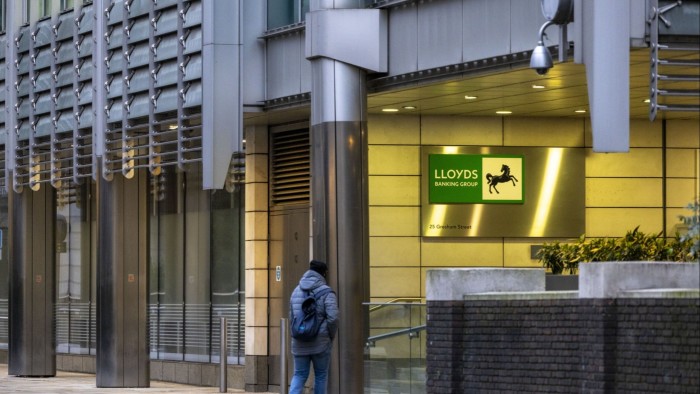Lloyds backs fund for local non-profit lenders

Roula Khalaf, Editor of the FT, selects her favourite stories in this weekly newsletter.
Lloyds Banking Group is to be the lead investor in a £62mn fund that will back community development finance institutions, becoming the UK’s first high street bank to support the not-for-profit lenders that offer credit to customers who cannot access it elsewhere.
CDFIs typically offer lower-value loans used as a last resort by consumers and businesses that are unable to access credit through traditional routes because of their poor credit records.
Although the sector has grown in the UK over the past two decades, it has struggled to scale up to plug the lending gap for those who are rejected by traditional lenders.
The UK nonprime lending market — which lends to riskier customers who do not have good credit scores — has shrunk by more than a third since 2019, according to a study by credit check provider ClearScore and consultancy EY.
Unlike in the US, where legislation incentivises banks to invest in the communities where they take deposits, CDFIs have struggled to attract institutional backing on a wide scale in the UK.
Total CDFI lending in the UK reached £248mn in 2022, according to trade body Responsible Finance. That year, the sector lent £29mn to start-ups, with an average loan size of £11,704, and £52mn to small and medium-sized businesses with an average loan size of £69,325.
By contrast, CDFIs and credit unions managed more than $150bn in the US in 2019, according to a report by social impact investor Big Society Capital, which is also backing the fund.
Elyn Corfield, chief executive of Lloyds’ business and commercial bank, said she was “delighted to support the CDFI sector to back local businesses, with a focus on deprived areas, and ensure they have access to a range of financial options right for them”.
Theodora Hadjimichael, chief executive of Responsible Finance, welcomed the pledge and called on other mainstream lenders to follow suit. She also urged the government to extend the Recovery Loan Scheme that has offered small and medium-sized businesses a lifeline since the Covid-19 pandemic and is due to expire in June.
Smaller businesses’ access to finance is also the focus of a government inquiry. Data published last week by a parliamentary committee found that more than 140,000 businesses had their accounts closed by the UK’s biggest banks last year. Lloyds Banking Group said it had closed the accounts of about 0.6 per cent of its SME customer base in 2023, mainly because of financial crime concerns.
Lloyds said its £62mn Community Investment Enterprise Fund aimed to invest in roughly 800 small businesses in England and Wales as the high street bank seeks to boost its environmental, social and governance credentials. It will be managed by Social Investment Scotland, itself a CDFI, and will invest in three others institutions: BCRS Business Loans, Business Enterprise Fund and Finance For Enterprise.
Although Lloyds is the first high street bank to directly invest in CDFIs, NatWest in 2023 pledged to distribute £900,000 worth of household grants to low income households in partnership with the sector.
This article has been amended since initial publication to clarify that Lloyds will be the lead investor in the new fund
Comments